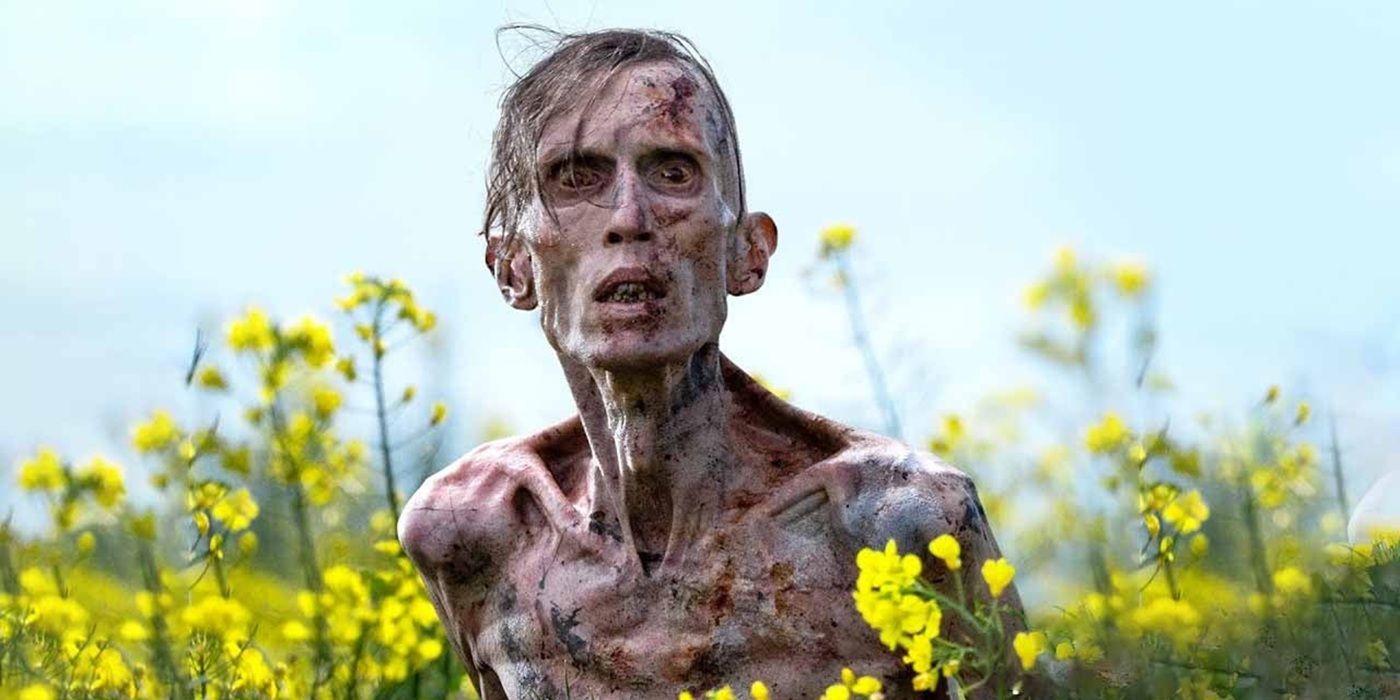
While not quite twenty-eight years after 2002’s 28 Days Later…, the return of Danny Boyle to the franchise that helped redefine the zombie film for mass audiences still feels like a long time coming. It has been twenty-three years since the original film and eighteen years since the second film. It’s hard to say that this was a franchise where audiences were clamoring for a sequel, but the promise of Boyle coming back to the director’s chair and Alex Garland penning this third entry certainly helped gun the engines of expectation.
Their return to the zombie apocalypse film is largely a welcome one, even though it comes with tonal whiplash. One can appreciate that Boyle and company didn’t want to rest on their laurels and wanted to try a different approach. While the original film was acclaimed for its fast-running zombies and deliberate, dark, post-apocalyptic tone, 28 Years Later plays some new riffs by adding to the lore and furthering the world building. Its choices largely work and add a sense of progression that this sequel almost demands by its title alone.
The film is well-grounded in character and theme. The focus is initially on Aaron Taylor-Johnson and his son, setting up what at first appears to be a father-and-son tale of survival in the apocalypse. Instead, this turns out to be a clever way of doing first-act exposition, preparing the audience along with the son for the film’s turn to a story of self-discovery and wrestling with the darkness of life.

Luckily, Alfie Williams is up to the task of playing the young protagonist, Spike. He comes across believably as both a child and someone hardened enough to survive in this tough world. The performance is strong enough to almost excuse the script’s clash between showing Spike out on his first “hunt” at the beginning of the film, when he is totally incompetent, and then quickly having the skills to survive when he heads out with his mother (Jodie Comer) a day later.
Despite the movie’s solid emotional core and sense of stakes, Boyle’s attempts to do something different are not always a success. In striking a new tone and feel, the film at times feels over-directed. There are many scenes with flashy cinematography and editing that emphasizes kinetic shots, and these feel as if they are aiming for something akin to Mad Max: Fury Road. This is further accentuated via the soundtrack choices and other odd details like prevalent zombie nudity and an almost humorous approach to the new, powerful version of the infected called Alphas.
It’s not that the movie is outright disrupted by the inclusion of humor, but the editing does not pivot naturally between humorous scenes and more serious ones. While movies can have both deathly serious moments and comedic ones, it usually requires an editor to cleverly move between the two for it to feel earned and properly built, something that is lacking a bit in this film. This is especially felt in the ending. Without spoilers, the movie has a heartfelt and emotional conclusion that delivers on the film’s journey and theme, and then very quickly cuts towards a humorous and bizarre scene that actually ends the movie and sets up a sequel. While both scenes work in their own context, seeing one after the other felt like a baffling choice.
Despite these flaws, 28 Years Later is still a strong piece of cinema. Ralph Fiennes, Comer, and Taylor-Johnson all provide strong performances for their characters, even with relatively small roles for each in the overall context of the movie’s plot. The scenes when the zombies/infected attack are rife with tension, and there are multiple striking visuals throughout. The film has an oddly melancholic approach at times that proves quite resonant, and came at a time for this reviewer personally that was quite cathartic. Whether the promised sequels are worth it or not, 28 Years Later made the resurrection of this zombie franchise a solid time at the cinema.
Tell us your thoughts on 28 Years Later below and rank it now on Flickchart!







